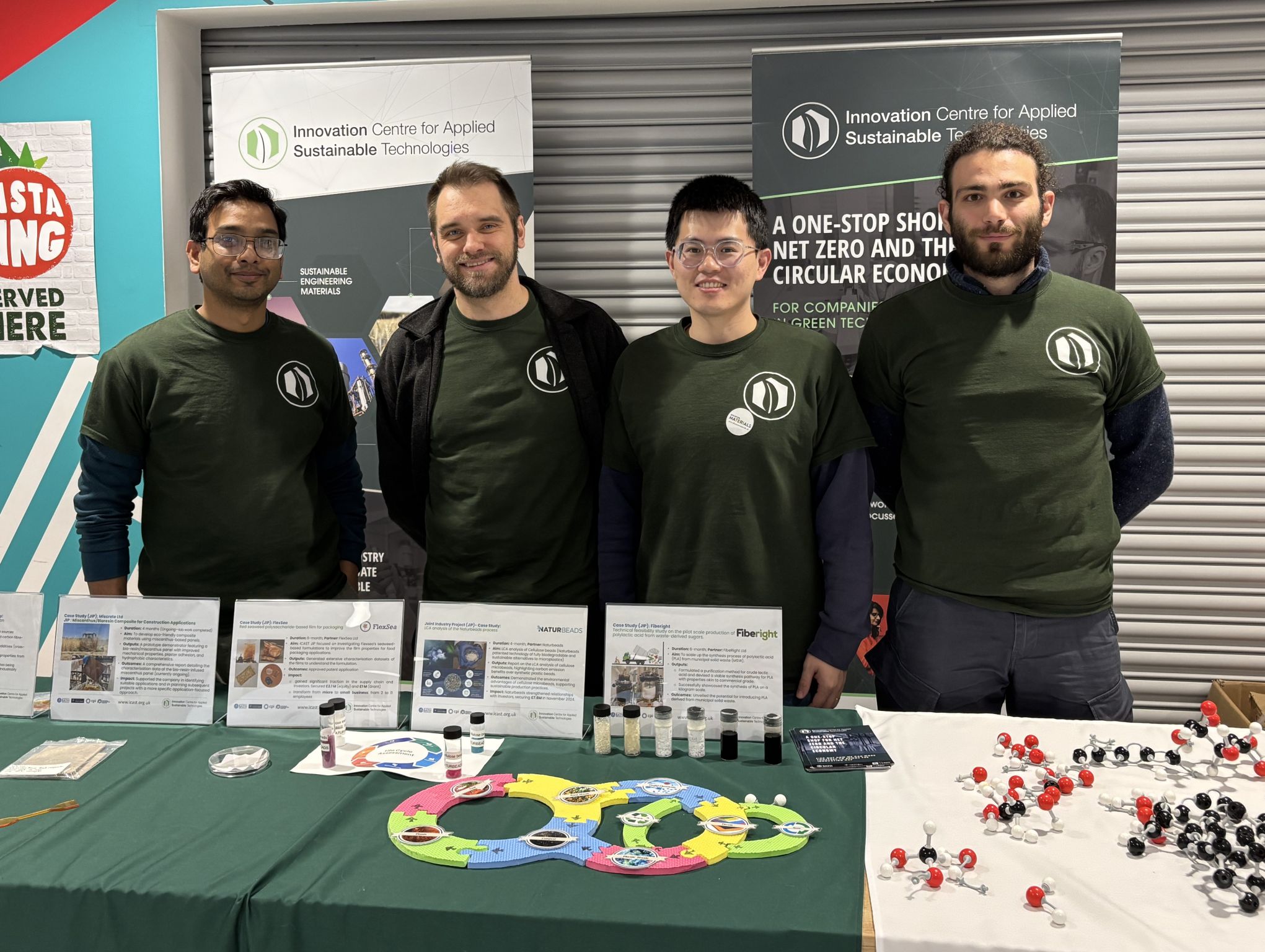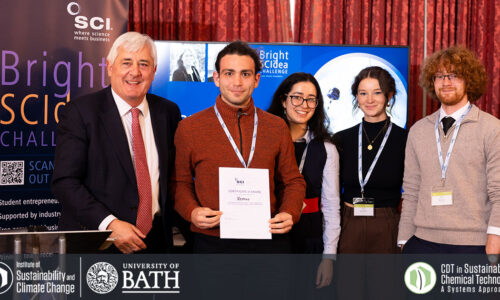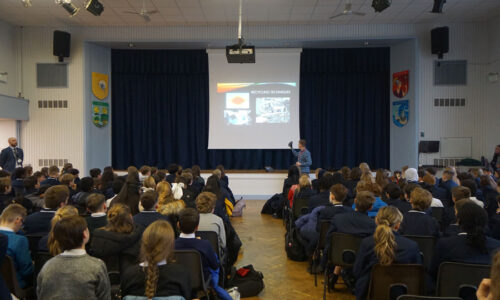Public Engagement
At the CDT in Sustainable Chemical Technologies: A Systems Approach (CSCT), public engagement is not an add-on, it is embedded in the fabric of how we train researchers and conduct science. We believe that responsible innovation requires not only technical excellence, but also a genuine dialogue with the public, built on mutual respect, accessibility, and shared learning.
Since its inception, the CSCT has prioritised developing researchers who are not only leaders in their fields, but also skilled communicators, collaborators, and advocates for sustainable innovation. Over 170 PhD students have now participated in a robust programme of public engagement training and practice, equipping them to engage confidently and creatively with a wide range of audiences.
A Culture of Creativity and Collaboration
Peer-to-peer learning is a cornerstone of our approach. Our students support and inspire each other, leading to the co-creation of innovative projects that extend beyond traditional models of outreach. These include collaborations with creative disciplines, public engagement events that blend science with performance, and hands-on activities designed to engage diverse audiences - from school groups to festival-goers. This work has been consistently recognised, with students earning awards at both institutional and national levels, including success in public engagement competitions such as the 3-Minute Thesis (3MT).
Why It Matters
Our public engagement is not just about communicating what we do, it's about shaping what we do. By engaging with young people, families, policy-makers, educators, and curious citizens, our researchers gain insights that influence the direction and relevance of their work. These interactions:
Foster high-quality, socially responsible research with real-world applications
Build essential skills in communication, empathy, and interdisciplinary collaboration
Create open spaces for public discussion about the role of science and technology in building a sustainable future
Through public engagement, CSCT researchers grow as scientists, and as citizens, ready to meet the challenges of the 21st century with imagination, accountability, and purpose.
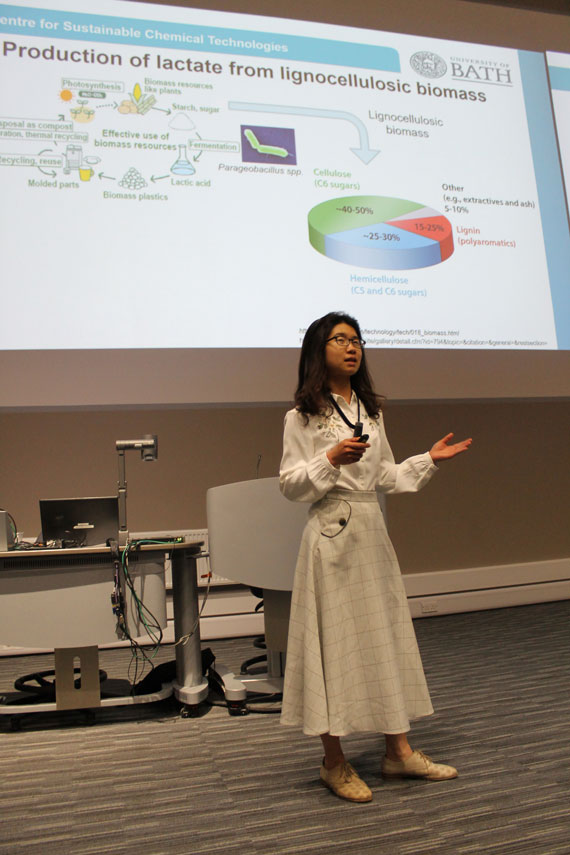
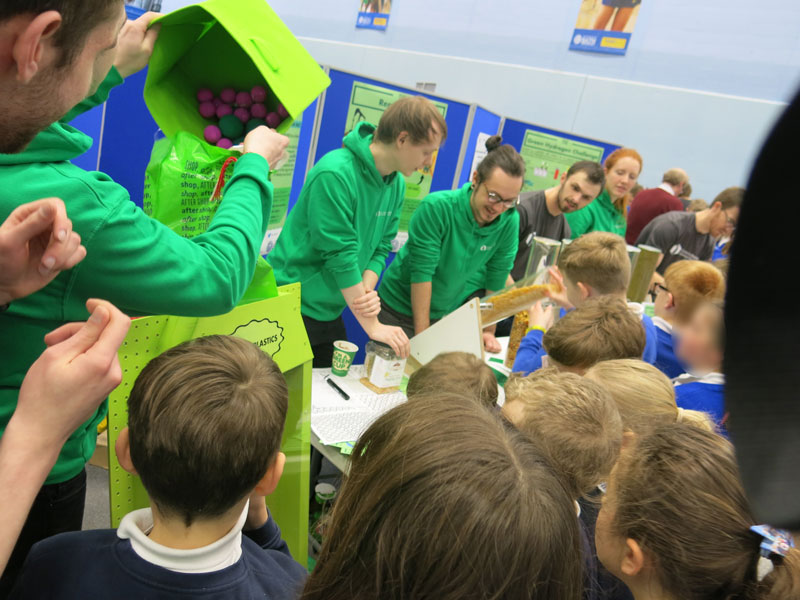
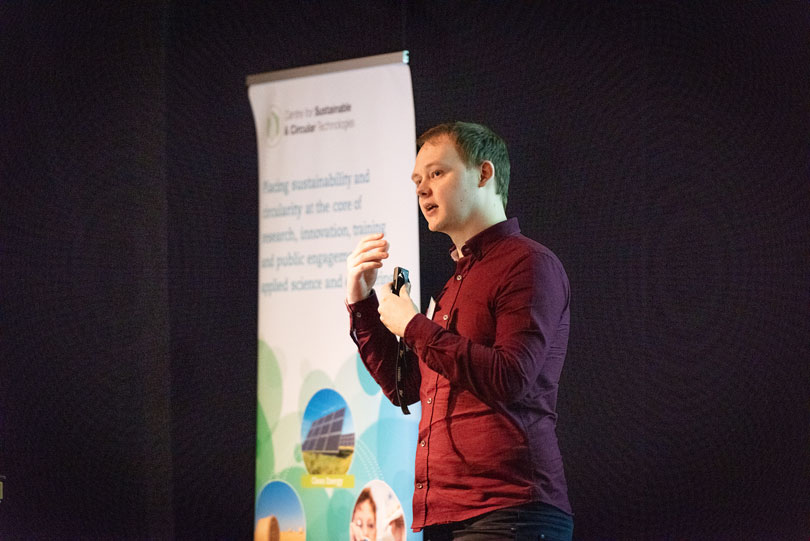
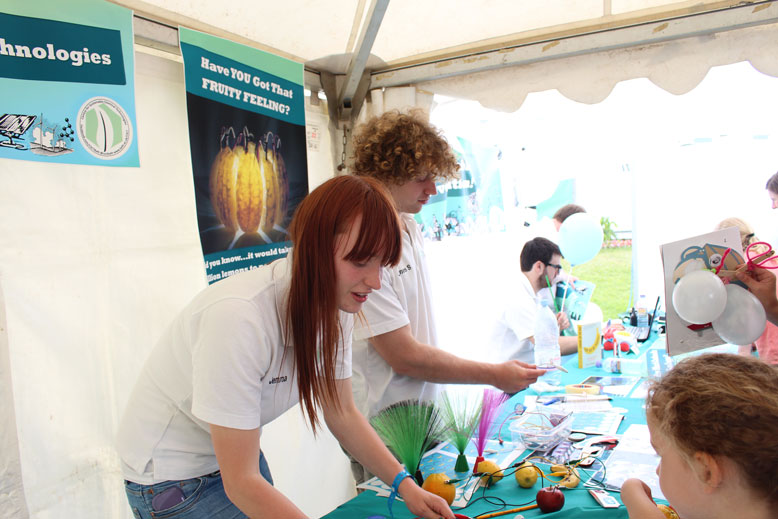
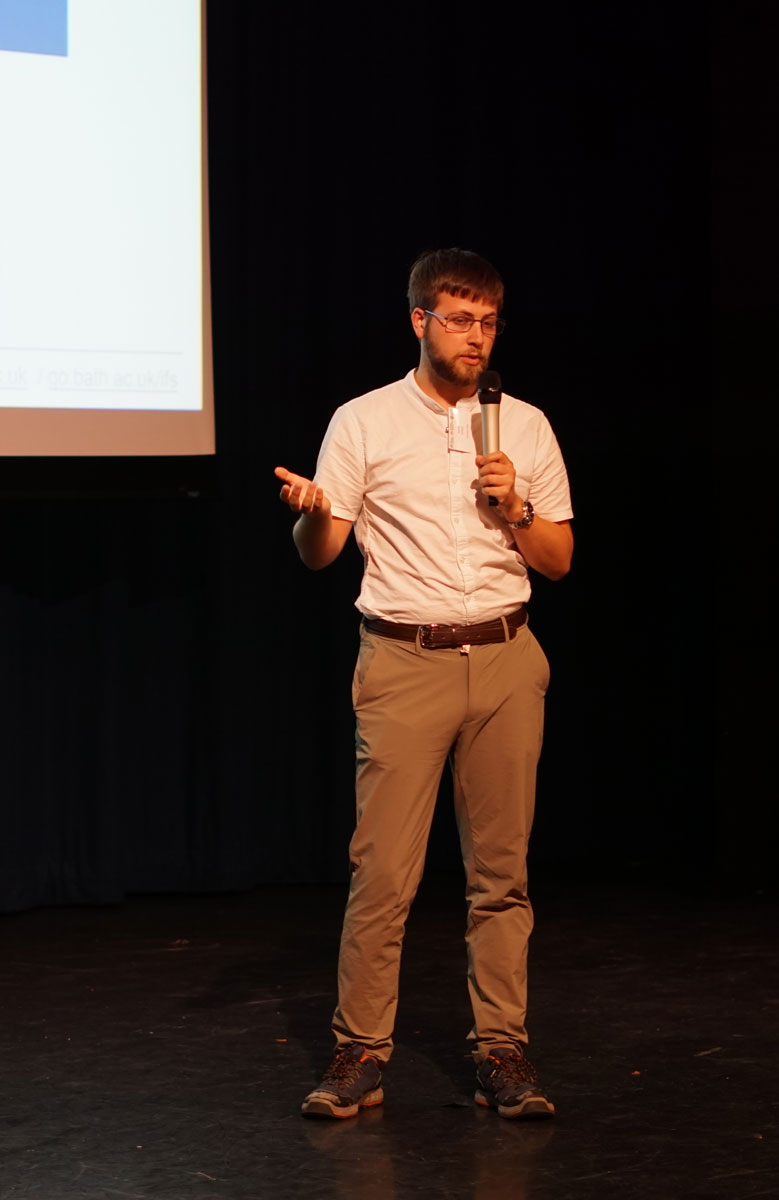
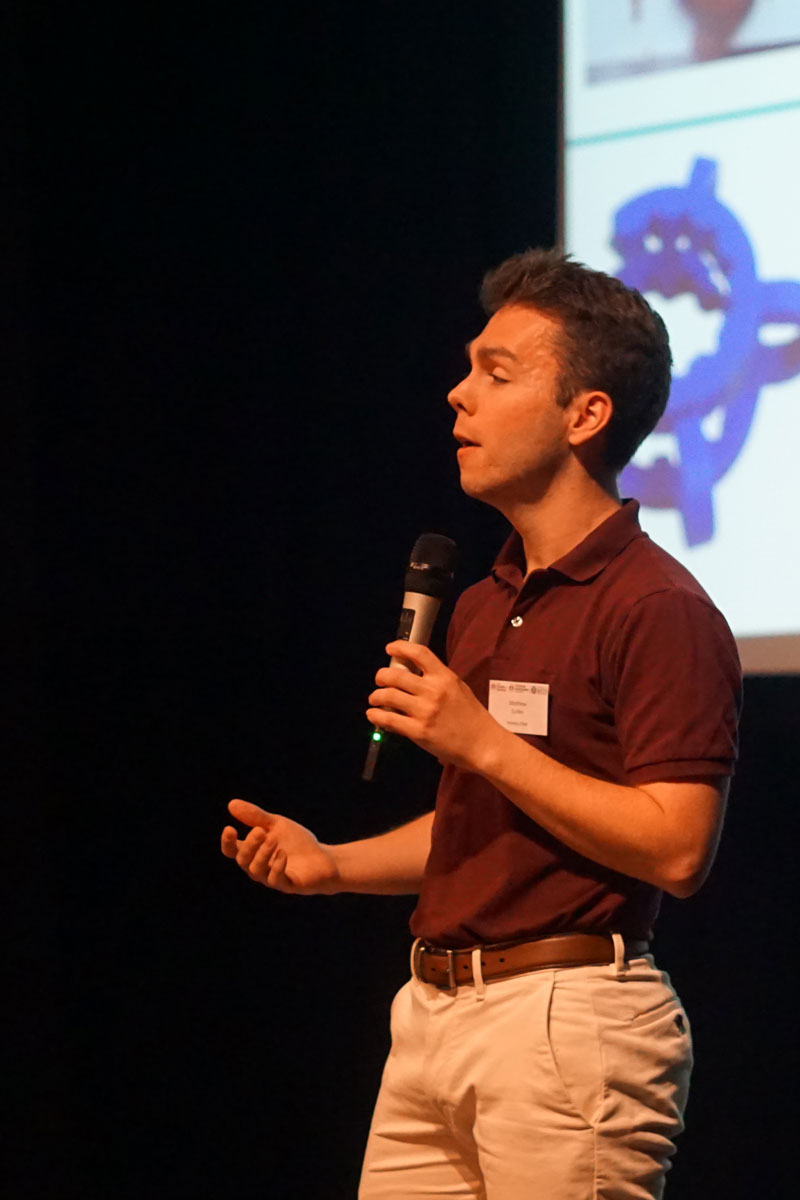
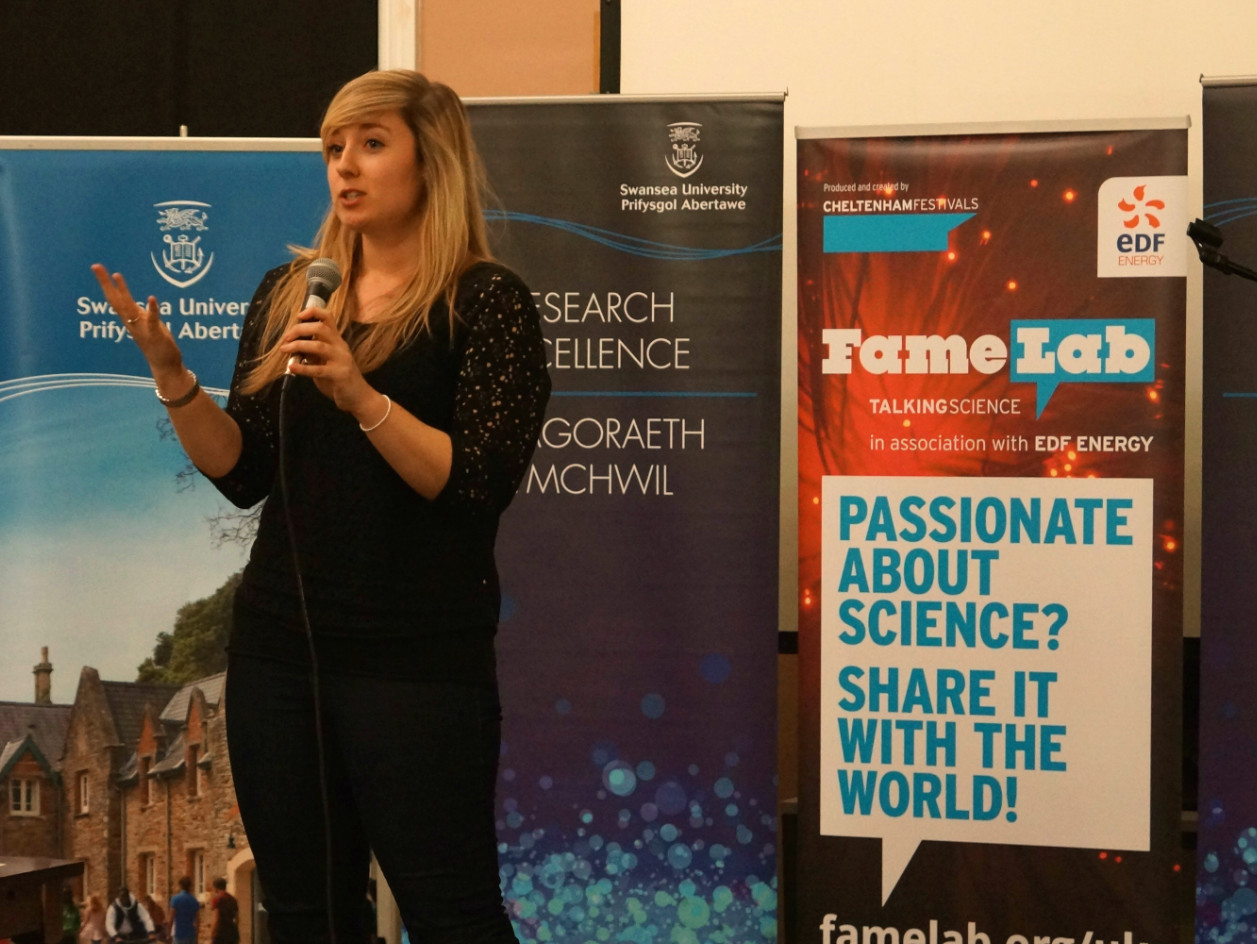
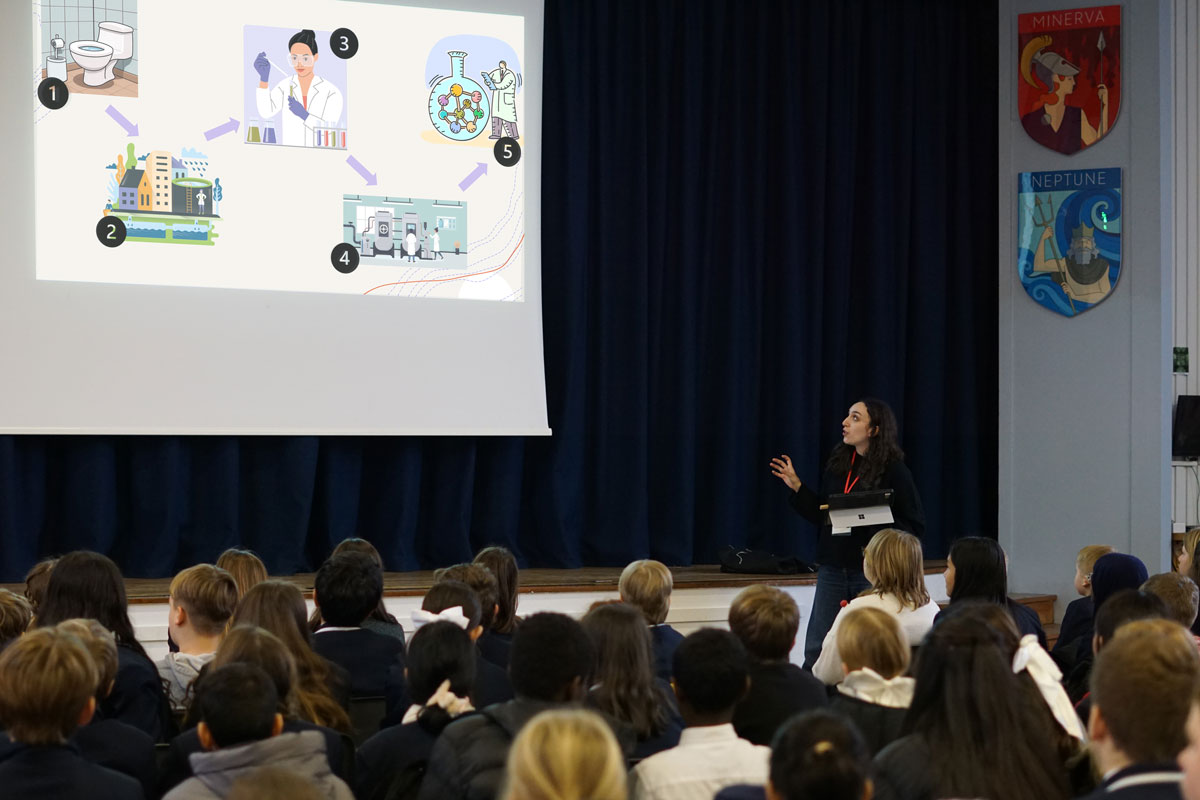
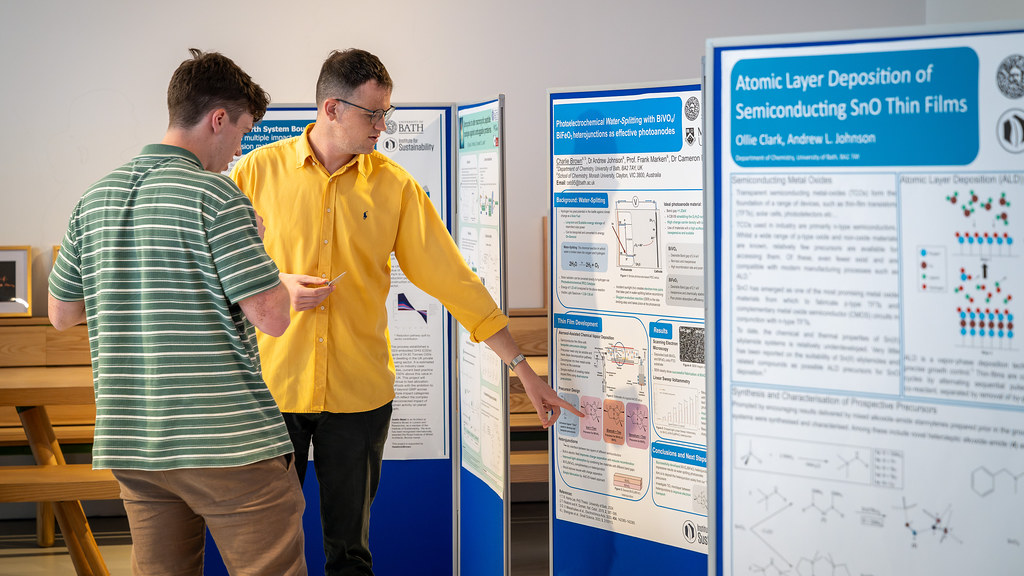
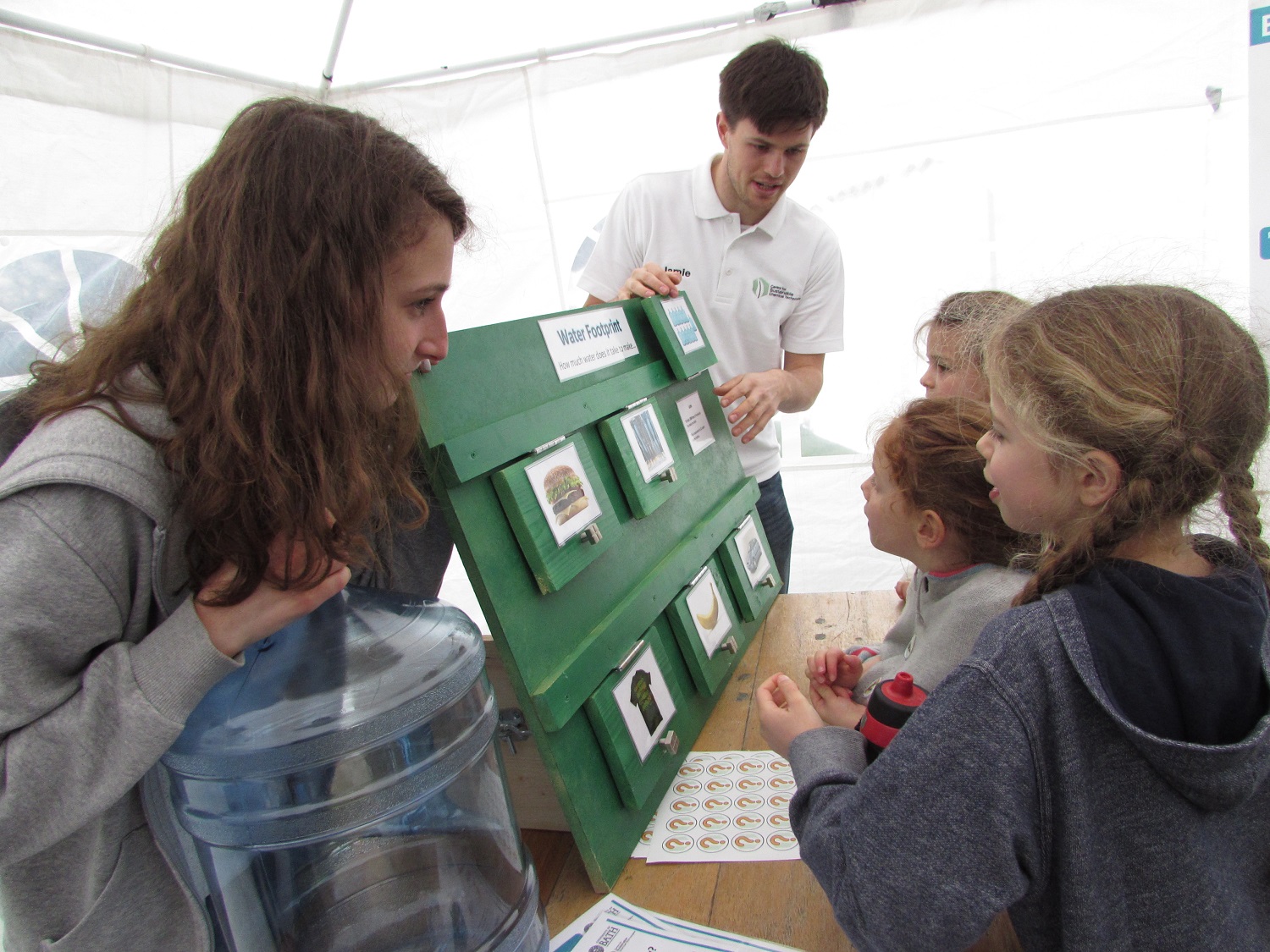
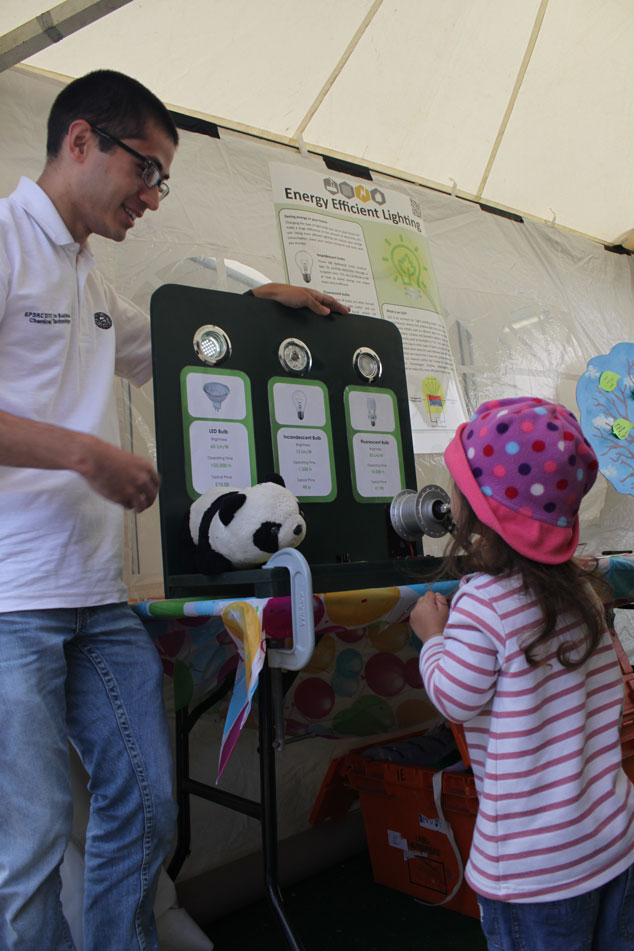
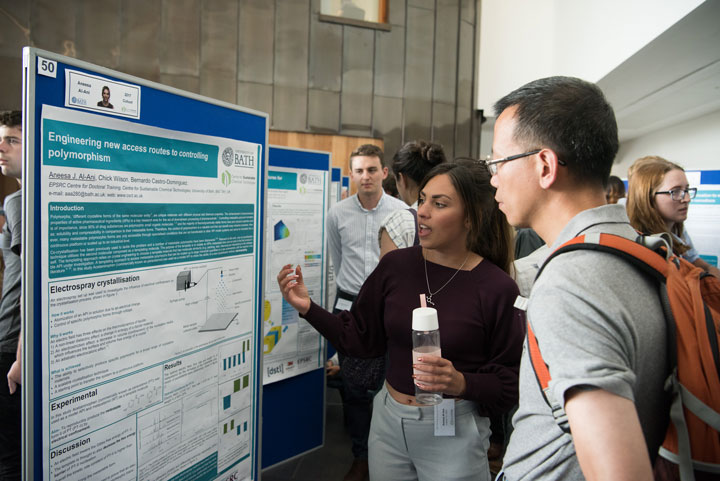
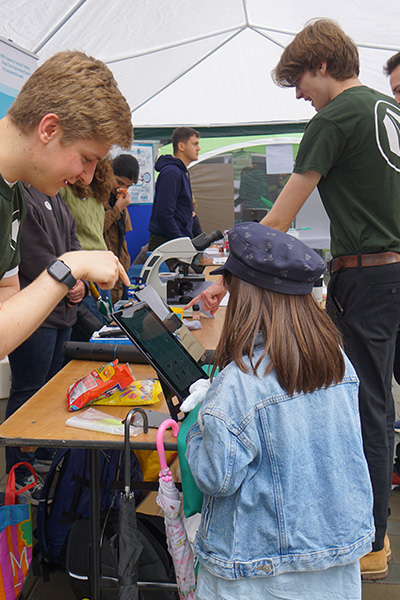
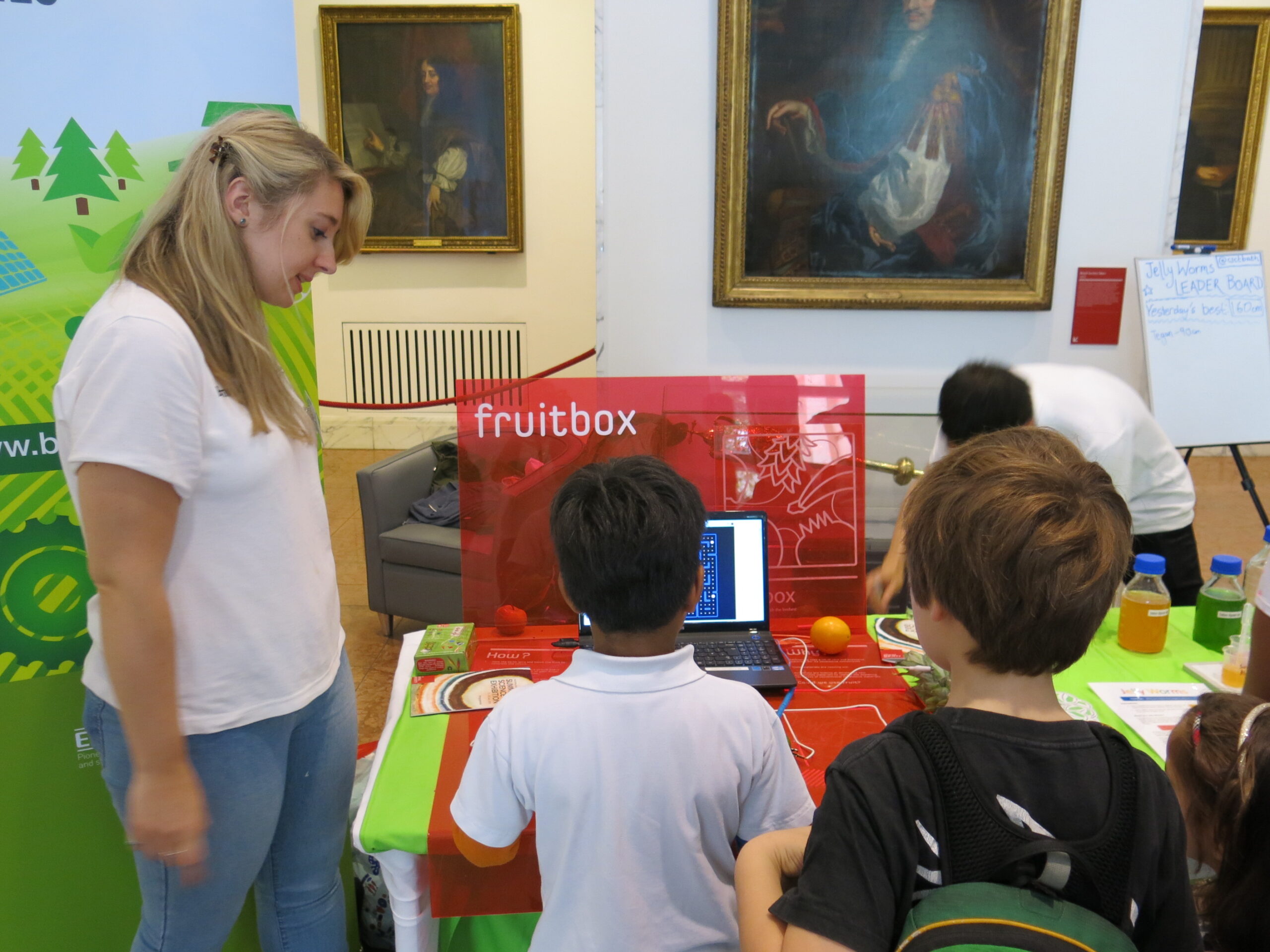
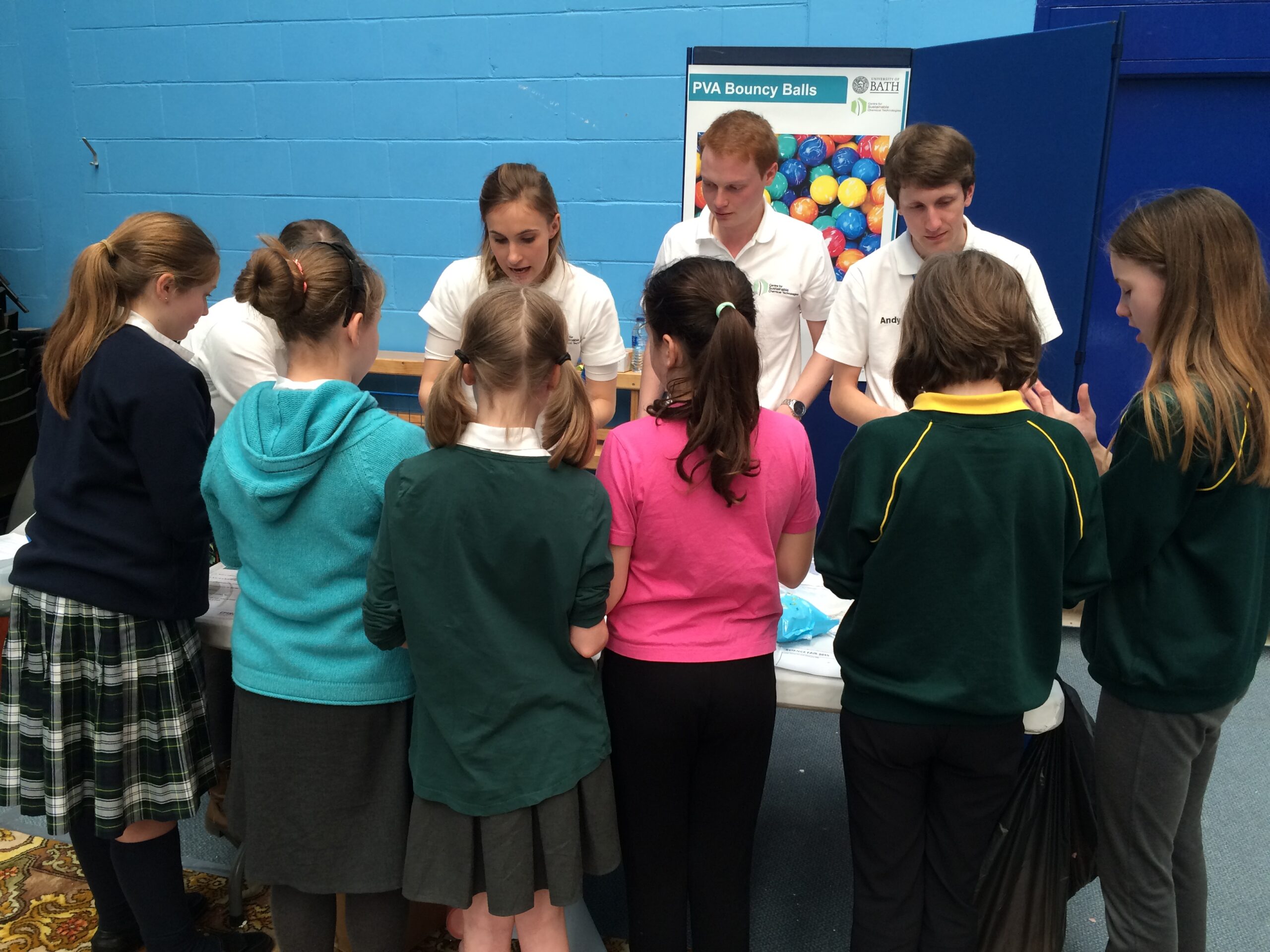
The Course
A Practical, Performance-Based Approach
Our dedicated training course equips PhD students with the confidence, tools, and experience needed to communicate their research with clarity, creativity, and purpose. Designed and delivered in partnership with expert practitioners, this course develops both verbal and non-verbal communication skills, underpinned by a collaborative, person-centred ethos.
Students are supported to develop a communication portfolio across these formats, many of which are professionally recorded or documented for future use in digital communications, public engagement events, or media outreach.
The course focuses on creating tangible, public-facing outputs that students can use to connect with diverse audiences, from school pupils to science skeptics, from social media users to live event attendees. Students work on a range of formats tailored for real-world use:
Flash Presentations
One-minute talks that distill complex research into a single, clear message supported by a compelling visual. This format builds skills in brevity, audience engagement, and visual storytelling.
Digital and Social Media Storytelling
Succinct visual and video content tailored to platforms like YouTube, LinkedIn, Instagram, and TikTok. Includes formats such as “My PhD Journey” videos, themed campaigns, reels, and engaging visuals for public audiences.
Radio-style Interviews
Conversational interviews simulating live radio or podcast segments. Students practice explaining their work accessibly and responding confidently to questions.
Public Presentations
Short talks designed for non-specialist audiences, such as schools or community groups. The focus is on making research relevant and inspiring through clear, engaging storytelling.
Feature Writing
Long-form, narrative-driven articles, e.g., 500-word features for Bath Time student magazine or similar outlets.
Short-Form Digital Writing
Concise written content: blog posts, 160-character hooks, social media captions, and quick-read pieces tackling science myths or controversies.
Communication Skills That Go Beyond the Lab
The course is grounded in best practices for effective, ethical, and inclusive science communication. Through a combination of workshops, improvisation exercises, and peer feedback, students explore:
Verbal Communication:







Non-Verbal Communication:







Through our public engagement activities, our researchers have the opportunity to:

Build skills for working effectively with external collaborators

Enhance the relevance and impact of their research by engaging with diverse audiences

Create public spaces for discussion about the future of sustainable Technologies
